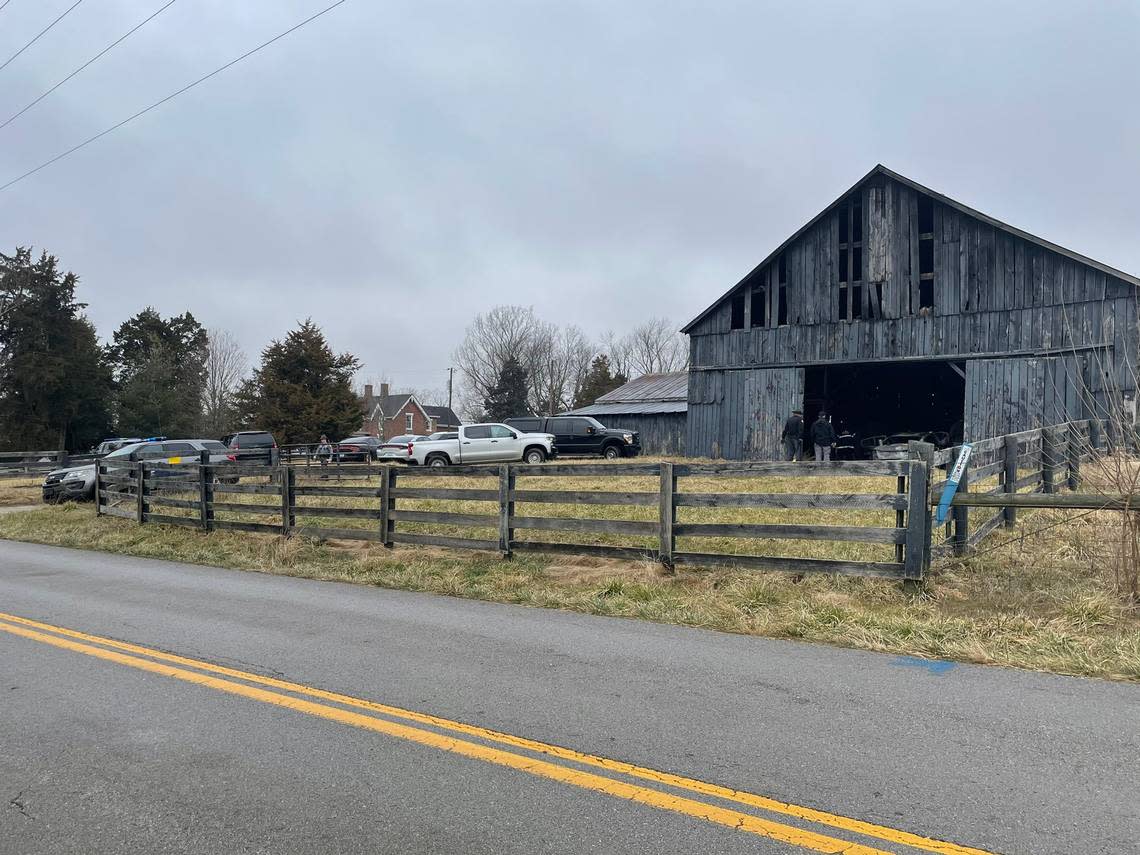Lexington man was found shot, dead in a burning car. Suspect faces trial 2 years later

One of three suspects accused of killing a Lexington man and setting his body on fire in a car outside the city faces a murder trial this week.
Cecil Thomas Russell, 39, was charged with murder, complicity to abuse a corpse, complicity to commit arson, evidence tampering and criminal mischief after the body of Lazarus Parker was found by firefighters in the trunk of a burning car inside a barn on Hutchinson Road in Bourbon County, according to Kentucky State Police. Russell’s trial started Monday, more than two years after Parker died.
During opening statements Monday, Assistant Commonwealth’s Attorney Mary Tobin told the jury that Parker and Russell had gotten into a dispute at a Dakota Street residence, where Parker’s name was on the lease, and Russell sometimes stayed.
Before his body was found, the timeline and evidence in the case suggest Parker was shot in the residence, and his body was taken to the barn in Bourbon County on Feb. 9, 2021.
Tobin said during the dispute, Parker shot a warning shot at Russell, who was allegedly hiding in the bathroom. Parker fired another time, and the gun jammed, Tobin said.
“What happens in the next however long it was, is where the question is for the jury today,” Tobin said. “The primary question: Who shot Lazarus?”
Daniel Whitley, Russell’s attorney, said it wasn’t his client who did it. The defense team team shifted guilt on two other people in the home at the time: 30-year-old Autumn Owens and 36-year-old Martae Shanks, who are now married. The two were charged with multiple counts of drug trafficking, drug possession, criminal mischief, complicity to abuse a corpse, and complicity to arson.
The couple was expected to be on trial with Russell, but Owens previously accepted a deal in exchange for cooperating with prosecutors, according to Whitley. Martae Shanks accepted a deal with prosecutors as recently as Thursday, he said. Both are expected to testify in court Wednesday.
Tobin said the couple had “accepted responsibility.” Whitley said the time between initial interviews and the deal offerings gave the couple time to “have their memory become more clear.”
Russell was charged first, based on evidence and his own statements about being at the Lexington home where Parker was shot and at the barn where Parker’s body eventually was found in the burned car, Kentucky State Police detective Jeff Gaby testified previously.
A “cooperating witness” told investigators she heard Russell and Parker get into an argument before multiple gunshots rang out and someone screamed, according to an arrest warrant. The cooperating witness, who was at a building in the 700 block of Dakota Street, told investigators she walked out into the hallway and saw Parker dead on the floor, according to court records.
Russell admitted he was in the house on Dakota Street and was in an argument with Parker, and Russell said he had been in the vehicle when it was taken “somewhere in the county” before it was burned, Gaby said. But Russell never told investigators he killed Parker.
In fact, Whitley told the jurors that after his initial interviews with investigators, Russell called police from inside jail — despite his attorney’s advice — to tell them further about his lack of involvement in the killing of Parker.
“We aren’t even asserting self defense, because (Russell) didn’t do it. He was hiding in the bathroom,” Whitley said plainly. He reminded the jury of Tobin’s admission that Parker had shot first and asked, “Is it legal to shoot someone while they are hiding in the bathroom?”
Owens and Shanks were later picked up by police in March for drug trafficking and were later discovered to have been at the Dakota Street home the night of the shooting, where they were living.
Opening statements began on Monday following jury selection which yielded a pool of eight men and six women — 12 of whom appear to be white. Following opening statements, several law enforcement officials and first responders testified. The trial is expected to last four days.

